 On a spring day at a Dunkin’ Donuts, Nicole* and Clara sit near a window, chatting and laughing while they sip their drinks. What is today a warm and close relationship started over two years ago on a much rockier note. Nicole first met Clara, her son’s CASA, in a courthouse during a time of crisis and at times didn’t even speak to her.
On a spring day at a Dunkin’ Donuts, Nicole* and Clara sit near a window, chatting and laughing while they sip their drinks. What is today a warm and close relationship started over two years ago on a much rockier note. Nicole first met Clara, her son’s CASA, in a courthouse during a time of crisis and at times didn’t even speak to her.
Nicole’s two-year-old son was removed from her care when he was found walking alone at night after he had gotten out of the house. Nicole said she started using heroin, fentanyl, and other drugs about six months after her son was born. While she was trying on her own to get sober at the time of the incident, she was struggling.
When the court appointed Clara as her son’s CASA, she didn’t know what to make of it.
“I hated anyone who wanted to help in any way,” she says. “I didn’t see it as help.”
Her relationship with Clara was difficult at first, and she went through a period where she didn’t talk to her. She remembers feeling jealous that Clara could see her son often for visits while she was separated from him during important milestones, like his third birthday.
“I blamed her, even though it was not her fault,” she says.
Nicole was part of a Family Treatment Court pilot program. Family Treatment Court is an option when substance use is a factor in an abuse or neglect case, and it focuses on using a team approach. Substance use and mental health providers, along with the Division for Children, Youth and Families (DCYF), CASA of NH and parent attorneys, work together to increase family access to supports and recovery services. It wasn’t easy being part of a new system in a relatively small community. Clara noted that Nicole received a lot of focus, especially since the police were familiar with her due to her substance misuse.
Eventually, things began to shift. Nicole learned that Clara was a volunteer — someone who was willingly and consistently showing up for her son without obligation.
“She was probably the only one who wasn’t self-concerned,” she said. “She wasn’t there for a paycheck.”
She began texting and calling Clara, appreciating that Clara would always pick up the phone. She recalls the time Clara was in the middle of a dentist appointment, but she still picked up to let Nicole know she would call her back.
“Clara was persistent and supportive, even when I told her to beat feet,” Nicole says.
Nicole began working on her recovery and developing organization systems so she could better keep track of things. She also filed a restraining order against her husband to ensure her son had a safe home to return to.
Clara and Nicole had become a team, working in the best interests of Nicole’s son. Clara said Nicole was determined; her son began to meet milestones, and his behavior became less aggressive. One day at court, Clara and Nicole met their own milestone — Nicole gave her a hug in front of the court.
After nearly two years of hard work, Nicole was able to bring her son home for good.
“I look at Nicole and tell her she’s my hero,” says Clara. “I don’t know if I could have done what she did.”
Recently, Nicole celebrated two years of sobriety, and she stays connected with a recovery coach. Her son, who started out nonverbal, is now a curious “chatterbox” who she says is always exploring new words. She still meets up with Clara, and they talk about the challenges of being a single parent and her goals for the future. She is taking steps to get her GED, and after that she wants to go to community college. She has been advocating as well for her son’s medical and educational needs.
“She fought for her son,” says Clara with pride. “She’s his biggest advocate.”
*Due to confidentiality, names and locations have been changed to prevent identification of a specific child or parent. The accompanying photos are stock images for illustrative purposes only and do not depict the people involved.

 On a spring day at a Dunkin’ Donuts, Nicole* and Clara sit near a window, chatting and laughing while they sip their drinks. What is today a warm and close relationship started over two years ago on a much rockier note. Nicole first met Clara, her son’s CASA, in a courthouse during a time of crisis and at times didn’t even speak to her.
On a spring day at a Dunkin’ Donuts, Nicole* and Clara sit near a window, chatting and laughing while they sip their drinks. What is today a warm and close relationship started over two years ago on a much rockier note. Nicole first met Clara, her son’s CASA, in a courthouse during a time of crisis and at times didn’t even speak to her.